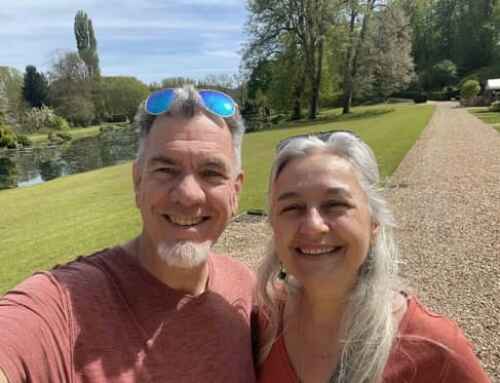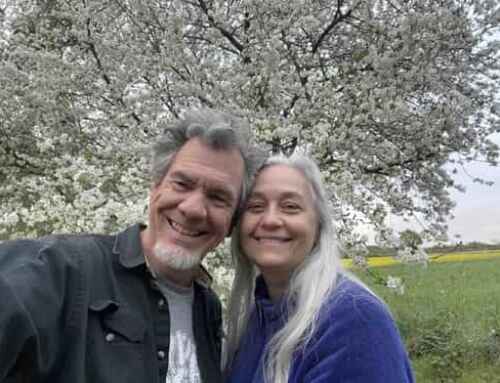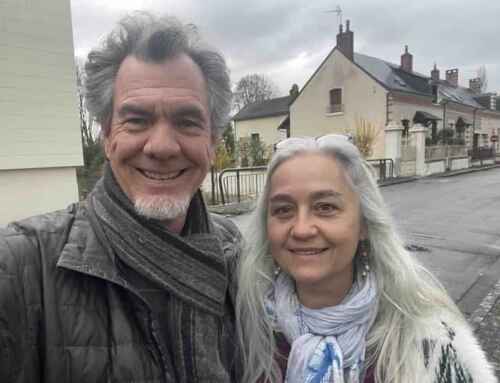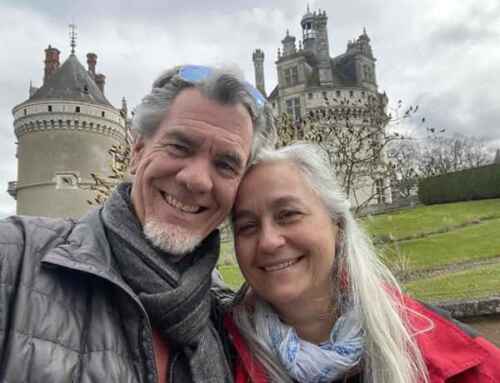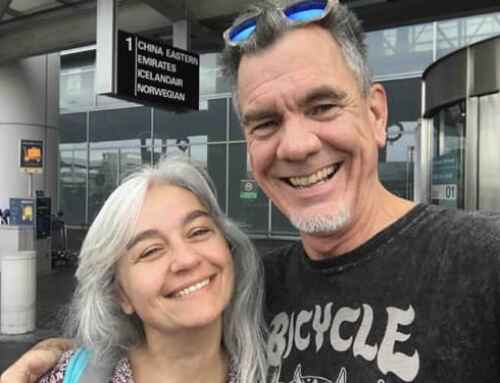[vc_row][vc_column][vc_single_image image=”25958″ img_size=”full” style=”vc_box_shadow_3d”][vc_custom_heading text=”
“To me, it’s that incredible sense of belonging and peace within your own self and heart that really is joy…“
~Goldie Hawn” google_fonts=”font_family:Montserrat%3Aregular%2C700|font_style:700%20bold%20regular%3A700%3Anormal”][vc_column_text]What does belonging mean to you? Is there a place, or team, or group of people that you feel like you belong to? What actions do you take to create a sense of belonging in other people?
The idea of belonging is an often misunderstood concept. The feeling itself can be a powerful motivator, in many ways it can be the glue that holds communities together. Just looking at the word itself, if you take away the ‘be’ you are left with longing, which is the feeling you might get when it’s lacking.
As the times have changed, so has idea of what it means to belong. In earlier times, people rarely traveled far from their birthplace, and in even earlier times when much of humanity was nomadic, we rarely strayed from our tribe or clan. Every family is a rich multi-generational repository of traditions and rituals, all of which reinforce what it means to belong.
The modern world of travel, technology, and global communications provides ample opportunities to belong. Online communities thrive with members safe behind anonymous usernames allowing them to express themselves in ways that would never feel safe in a face-to-face context. Collaborative groups for work or education take advantage of video-conferencing to transcend the barrier of distance. Inexpensive and convenient methods of travel allow people to attend workshops, retreats, or conferences on a regular basis.
Nevertheless, a true sense of belonging isn’t always as easily found as we might hope, for some folks it is sadly lacking. For those who are estranged from family, isolated, or experiencing financial hardship, the effort it takes to maintain connections and participate in community may feel like just too much. The superficial veneer of social networks can be discouraging, especially if one falls into the trap of comparison with the shiny surface appearance of people’s online lives.
So what are some of the factors that help people feel a sense of belonging? Shared language is a big one, every family, club, or profession has a unique set of terms and jargon, not to mention national identity in the larger sense. There are shared experiences or rituals that people undertake together that strengthen bonds within a group. Apparel or fashion often plays a part. Any of these things and many more can be the underlying basis that gives rise to a knowing look between members.
One thing to remember when it comes to the idea of belonging, is that it’s a two way street. If you don’t feel like you belong to something, you can create something for people to belong to. That’s one of the things I’m often struck by as the current torch-bearer for Dance Jam — before I began running the show a few years ago I was just an occasional DJ, now as the host and proprietor, I’m responsible for creating the sense of belonging that keeps my team of crew members showing up week after week to make the dance happen.
Opportunities to be the ‘belonging-creator’ abound, from the smallest Meet-Up group to the largest festival organizers, from sewing-circle hosts to corporate CEOs, the service of creating a culture of belonging is a huge contribution. And it’s important to understand the language of inclusion so that the structure you create feels more like a sustainable and scalable community, and not an exclusionary clique.
A ‘clique’ or a ‘scene’ is usually more defined by who is kept out than who is invited in. Rather than a shared set of values and ideals, it can be more about arbitrary rules, and the adoption of hard-to-fathom systems of belief. Taken to extremes, the dark side of the equation becomes a cult. Cults, in fact, subvert the power of belonging into a warped form of force that tricks people into acting against their own self-interest.
Whoever you have the chance to ponder the power of belonging in you own family, profession, or dance community, check in with yourself about the level of consciousness that is being upheld. When you look at belonging through the lens of consciousness, it’s easy to see where the values of love, acceptance, and contribution lead to thriving outcomes, while a focus on fear, lack, doubt, or judgement leads to limitation and spiritual starvation.
May your week be wonderful and your life be flowing! Wishing you well with a snowman from the slopes of Mt Shasta, much love until next Monday!
M+
Mark Metz
Director of the Dance First Association
Publisher of Conscious Dancer Magazine[/vc_column_text][vc_custom_heading text=”Conscious Dancer Community Spotlight :: Moti Zemelman & the 6th Annual Contact Improv Retreat in Costa Rica! ” google_fonts=”font_family:Montserrat%3Aregular%2C700|font_style:700%20bold%20regular%3A700%3Anormal”][vc_single_image image=”25959″ img_size=”full” style=”vc_box_shadow_3d” onclick=”custom_link” img_link_target=”_blank” link=”http://www.contactimprov.com/costarica.html”][vc_column_text]This week’s Conscious Dancer Community Spotlight shines on Moti Zemelman and his signature event, the 6th Annual Costa Rica Contact Improv Retreat at the Goddess Garden Nature Retreat in Cahuita. We had a conversation recently about his work, so I’m glad to be able to share some of his story and some inspiring info about this trip coming up Feb 16th to 23rd.
I asked Moti how he got started leading retreats. “ I’ve been doing this form for 30 years, and I was doing a lot of traveling and teaching in the late 90s and early 2000s, going to Israel and places around Europe, when a friend was doing a writing retreat in Guatemala and invited me to come and lead some movement with their group. It was my first time doing something like this and I thought ‘This is great! I could do something like this with my own group!’ so the following year was my international retreat, would have been around 2004.”
The retreat center in Cahuita that hosts their group has a stellar reputation, they are fortunate to have it as their regular venue. “Goddess Garden is a fantastic center, right by the beach, with sloths and monkeys and tree frogs that we can be inspired by in our dancing, and two beautiful studios to move in.” Another great benefit of this retreat is the fortunate coincidence that Moti’s group shares the center with another yoga group for a greater opportunity for community building. “We share some classes and jams with them, it’s a really nice cross-pollination.”
Another dynamic feature of these journeys with Moti are how he designs them to connect with the local community. He offers a scholarship program for locals and pro-bono classes and jams to make the event accessible to local dancers. “ When I’m going to another country, I prefer not to work in a vacuum, but to connect to the local people and the environment. When I went to Costa Rica for the first time, there was really no contact happening, so I Googled and found a couple of people who were using it in their choreography. They invited me to teach some workshops in San José and after a couple of years of planting the seeds there, they now it’s a flourishing contact improv community with weekly jams for upwards of 20 to 40 people.”
Diversity is a core value for Moti, his retreats magnetize people from around the world to convene in paradise. Folks from the USA and Canada get to connect with Costa Rican locals, as well as travelers from Europe, Mexico, Guatemala, Central America, and Asia. It’s also diverse age-wise, “We have dancers from their early 20s to well into their 70s dancing together, which is also a testament to contact improv being such an inclusive dance form. Being inclusive and offering more diversity creates more interesting dialogs in the group and fosters more long lasting connections.”
You’ll also be treated to some amazing extracurricular activities such as a walking excursion to the Cahuita National Park on the beach where “ We do a number of site-specific dance structures with the trees and the natural surroundings. There’s also the ‘Marathon de Contact’, a day-long event that happens upon arrival at the University of San José in collaboration with local teachers. It’s free, and open to the community, so we typically get 80 to 100 people showing up during the day and evening. We do it the day after we arrive in the capital, and the the next day we take the four-hour bus ride down to the coast.”
At one point during our interview I accidentally referred to the capital as San Juan, and he was quick to correct me. “The capital of Costa Rica is San José, one year we actually had a participant book a flight to San Juan, and they wound up in Puerto Rico! ”
Moti has been on the board and faculty of Earthdance located in the Berkshire Hills of Western Massachusetts for several years, involved with many of the events and contact improv workshops there. “Now I co-direct a festival every summer there called ‘Touch and Play ’, another big project that I’ve been involved with for four years. This summer’s dates are July 9th to 14th. Some of the big focuses at this event are the ideas of intimacy and the language of consent culture, very important concepts to be aware of in this time of the #MeToo movement.”
You can learn more about Moti and his regular weekly classes, jams, and monthly blindfolded jam on his Facebook Page , and more details about his workshops at the community resource site he hosts,www.contactimprov.com. You’ll find him teaching in other locales around the country such as Washington, DC, Portland, Maine, Montreal, Vancouver, Toronto, etc as well.
We highly recommend Moti and his work to you and the extended conscious dancer community! If any of these events or retreats are in alignment with your practice, or if you feel ready to expand and explore, make plans now while airfares are still reasonable, and experience Moti and his movement community firsthand!
Contact Improv :: Beginner’s Mind – 50 Ways to Enter the Dance
Feb 2, Hartford, CT
6th Annual Contact Improv Retreat with Moti Zemelman
Feb 16-23, Goddess Garden Nature Retreat, Cahuita, Costa Rica
ConSensual: Contact Improv & The Art of Consent
Mar 22-24, Washington, DC
Touch and Play Festival
July 9-14, Earthdance, Plainfield, MA
More Resources and Information at:
www.ContactImprov.com[/vc_column_text][vc_single_image image=”25991″ img_size=”full” style=”vc_box_shadow_3d” onclick=”custom_link” img_link_target=”_blank” link=”http://www.contactimprov.com/costarica.html”][vc_raw_html]JTNDdGFibGUlMjBib3JkZXIlM0QlMjIwJTIyJTIwd2lkdGglM0QlMjI2MjElMjIlMjBjZWxsc3BhY2luZyUzRCUyMjUlMjIlMjBjZWxscGFkZGluZyUzRCUyMjUlMjIlM0UlMEElM0N0Ym9keSUzRSUwQSUzQ3RyJTNFJTBBJTNDdGQlM0UlM0NhJTIwaHJlZiUzRCUyMmh0dHBzJTNBJTJGJTJGd3d3LnRhbWFscGEub3JnJTJGJTIyJTIwcmVsJTNEJTIyYXR0YWNobWVudCUyMHdwLWF0dC0xOTMzMiUyMiUzRSUzQ2ltZyUyMGNsYXNzJTNEJTIyYWxpZ25ub25lJTIwc2l6ZS1mdWxsJTIwd3AtaW1hZ2UtMTkzMzIlMjIlMjBzcmMlM0QlMjJodHRwJTNBJTJGJTJGY29uc2Npb3VzZGFuY2VyLmNvbSUyRndwLWNvbnRlbnQlMkZ1cGxvYWRzJTJGMjAxNyUyRjEyJTJGY29uc2Npb3VzLWRhbmNlci1hZC5wbmclMjIlMjBhbHQlM0QlMjIlMjIlMjB3aWR0aCUzRCUyMjMwMCUyMiUyMGhlaWdodCUzRCUyMjI1MCUyMiUyMCUyRiUzRSUzQyUyRmElM0UlM0MlMkZ0ZCUzRSUwQSUzQ3RkJTNFJTNDYSUyMGhyZWYlM0QlMjJodHRwJTNBJTJGJTJGd3d3LmJyZWVtYS5jb20lMkYlMjIlMjByZWwlM0QlMjJhdHRhY2htZW50JTIwd3AtYXR0LTIxNDcyJTIyJTNFJTNDaW1nJTIwY2xhc3MlM0QlMjJhbGlnbm5vbmUlMjBzaXplLWZ1bGwlMjB3cC1pbWFnZS0yMTQ3MiUyMiUyMHNyYyUzRCUyMmh0dHAlM0ElMkYlMkZjb25zY2lvdXNkYW5jZXIuY29tJTJGd3AtY29udGVudCUyRnVwbG9hZHMlMkYyMDE4JTJGMDUlMkZCcmVlbWFfTWF5MjAxOF93ZWIuanBnJTIyJTIwYWx0JTNEJTIyJTIyJTIwd2lkdGglM0QlMjIzMDAlMjIlMjBoZWlnaHQlM0QlMjIyNTAlMjIlMjAlMkYlM0UlM0MlMkZhJTNFJTNDJTJGdGQlM0UlMEElM0MlMkZ0ciUzRSUwQSUzQyUyRnRib2R5JTNFJTBBJTNDJTJGdGFibGUlM0U=[/vc_raw_html][/vc_column][/vc_row]

